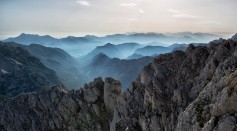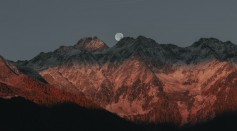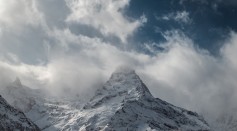mountains

Mountains Are Trees: Flat Earthers' Controversial No Forests Theory Explained

Climate Change Will Take a Toll on Mountains Globally, Scientist Says

Billions of Years Ago, Earth's Mountains Might Have Stunted Their Growth
How We Can See the Universal Beauty of the Mountains in Graphs
Mountain Clouds Change From Rain Makers To Snow Makers
Saturn’s Titan Was Likely Sculpted by Rogue Winds Gusting on the Moon
Sky-High Dig Reveals Ancient Paleoindian Workshop Site in Andes
Most Popular

How a Plant-Based Diet Can Protect Against Breast Cancer: Insights from Nutrition Research

Study Reveals High Turnover in Scientific Research Careers: What This Means for Future Scientists

How Technology Is Changing the Real Estate Industry?

Practical Steps to Future-Proof Your Money to Create Financial Security






